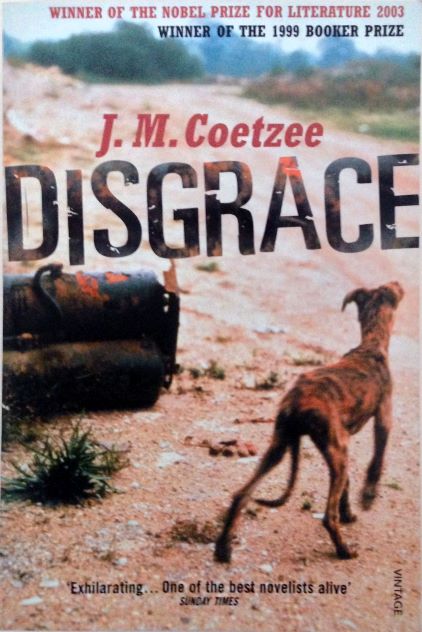Disgrace by J. M. Coetzee is a grim book that focuses on the darker side of life with themes about the powerful and powerless. Published in 1999, it won the Booker Prize and the author was also awarded the Nobel Prize in Literature in 2003, four years after its publication. A 2006 poll of “literary luminaries” by The Observer newspaper named the book as the “greatest novel of the last 25 years” of British, Irish or Commonwealth origin in years between 1980 and 2005. On 5 November 2019 BBC News listed it on its list of the 100 most influential novels.
Set in post-apartheid South Africa, Disgrace tells the story of 52-year-old David Lurie, a twice divorced, professor of communications and Romantic Poetry at Cape Technical University. Lurie lives a comfortable but passionless life. With age diminishing his attractiveness, he makes weekly visits to a prostitute to satisfy his sexual needs.
His fall from grace comes when he seduces one of his students, a girl named Melanie Isaacs, plying her with alcohol and other actions that arguably amount to rape. Relieved of his teaching position because of his sexual misconduct, he leaves Capetown to go live with his daughter Lucy on the Eastern Cape.
For a while, his daughter’s influence and rural life on a farm seem to harmonise his discordant life. But the balance of power in the country is shifting. Shortly after becoming comfortable with rural life, his life is turned upside down again after an attack on his daughter’s farm. He is beaten and locked in the bathroom, powerless to do anything while his daughter is raped by three black men.
Lurie volunteers for work with Bev Shaw, a friend of Lucy’s, who keeps an animal shelter and frequently euthanizes animals, which David then disposes of. Though finding her ugly, Lurie ends up having a sexual affair with Shaw. Meanwhile Lucy refuses to take action against her attackers
.As the relationship between father and daughter deteriorates, David returns to Cape Town where he finds his house has been broken into during his long absence. He attends a theatre performance starring Melanie, but is harassed into leaving by the same boyfriend who had earlier threatened him after his affair with the girl. He visits Melanie’s father to apologise and is invited to a dinner where he meets Melanie’s mum and younger sister. Melanie’s father insists that his forgiveness is irrelevant: Lurie must follow his own path to redemption.
At the novel’s end, Lurie returns to Lucy’s farm. Lucy has become pregnant by one of the rapists, but refuses to go for an abortion. Lurie returns to working with Shaw, where Lurie has been keeping a resilient stray from being euthanised. The novel ends as Lurie consents to give the stray dog up to Bev Shaw’s euthanasia.
The irony lies in the fact that while David Lurie is publicly disgraced for having a sexual relationship with a student, the three black men who rape and rob Lucy get away with their crimes. David and Lucy’s power and powerlessness come to parallel the racial conditions in South Africa.
 CY@CY Says Welcome to my dreamscape. Where a Lim is also a Ling.
CY@CY Says Welcome to my dreamscape. Where a Lim is also a Ling.
